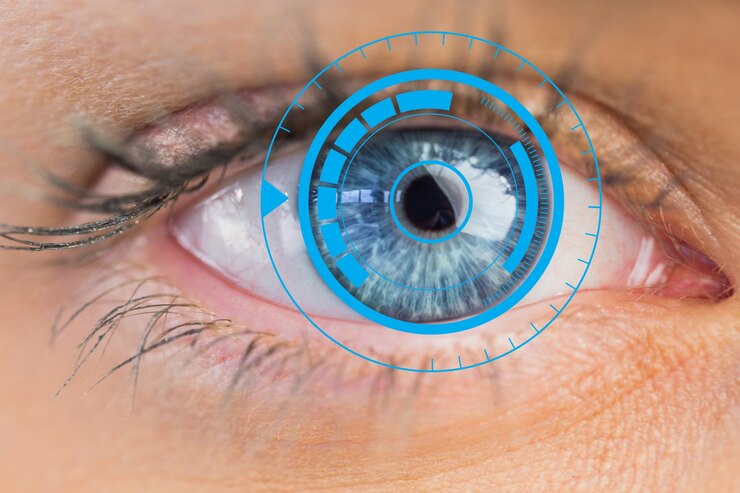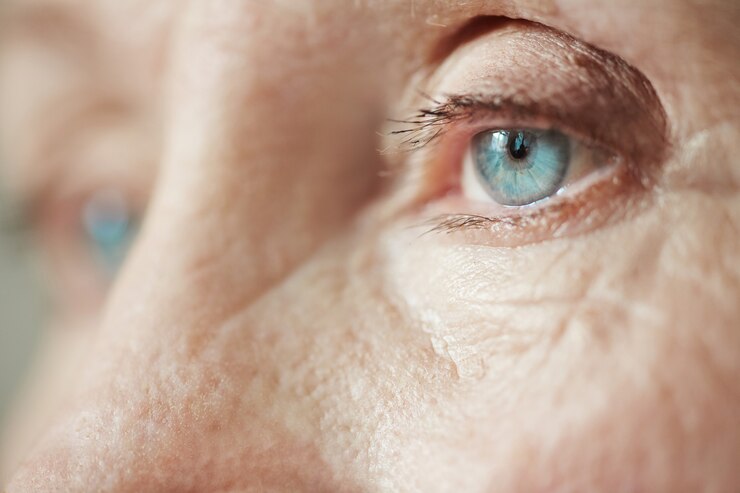Navigating the Impact of Diabetes on Ocular Health
April 25, 2024
Have Any Questions?
Please contact us, if you have any queries
Categories

Diabetes, a chronic condition affecting millions worldwide, has far-reaching impacts beyond its immediate metabolic disturbances. One of the lesser-known, yet significantly impactful arenas it affects is ocular health. Understanding the relationship between diabetes and ocular health is crucial, as early detection and management can prevent or delay the onset of vision-related complications. This blog delves into how diabetes influences ocular health and underscores the importance of vigilant eye care for individuals living with diabetes.
The Connection Between Diabetes and Ocular Health
Diabetes affects the body’s ability to use and store sugar, leading to elevated blood sugar levels. Over time, these high sugar levels can damage various body systems, including the delicate vessels in the eyes, leading to a range of ocular health issues. The eyes, being rich in small vessels and nerves, are particularly vulnerable to the deleterious effects of diabetes, making comprehensive eye care a critical aspect of diabetes management.
Diabetic Retinopathy: A Primary Concern
The most significant impact of diabetes on ocular health is diabetic retinopathy, a condition where high blood sugar levels cause damage to the blood vessels in the retina. This damage can lead to vision impairment and, in severe cases, blindness. Early stages of diabetic retinopathy may present with minimal or no symptoms, highlighting the importance of regular eye examinations for early detection and intervention.
Other Diabetes-Related Ocular Conditions
Beyond diabetic retinopathy, diabetes can predispose individuals to several other ocular conditions, including:
– Cataracts: Diabetes accelerates the clouding of the eye’s lens, leading to cataracts. People with diabetes tend to develop cataracts at a younger age and progress more rapidly than those without diabetes.
– Glaucoma: The risk of developing glaucoma, which involves increased pressure in the eye that can lead to optic nerve damage, is nearly double in individuals with diabetes.
– Diabetic Macular Edema (DME): This condition, stemming from diabetic retinopathy, involves swelling in the macula due to leaking fluid from damaged blood vessels, severely affecting vision.
The Crucial Role of Blood Sugar Control
Managing blood sugar levels is paramount in mitigating the risk of diabetes-related ocular complications. Consistent blood sugar control can significantly slow the progression of diabetic retinopathy and other ocular health issues. This necessitates a multifaceted approach involving diet, exercise, medication, and regular monitoring of blood glucose levels.
Regular Ocular Examinations: A Preventive Strategy
Regular eye examinations are vital for individuals with diabetes, allowing for the early detection and treatment of ocular health issues before they progress to more severe stages. Comprehensive eye exams should include a discussion of diabetes control, a vision acuity test, and a dilated eye exam to thoroughly assess the retina’s health.
The Role of Advanced Ocular Health Facilities at Dr. Rani Menon Maxivision Eye Hospital
Access to advanced ocular health facilities plays a critical role in the management of diabetes-related eye conditions. These centers offer specialized care, including retinal screening, laser treatments for diabetic retinopathy and DME, and surgical interventions for cataracts and glaucoma. Equipped with cutting-edge technology and specialized medical expertise, these facilities provide comprehensive care that can significantly improve outcomes for individuals with diabetes.
Diabetes and Ocular Health at Dr. Rani Menon Maxivision Eye Hospital in Thrissur
For residents of Thrissur and beyond, Dr. Rani Menon Maxivision Eye Hospital stands as a beacon of excellence in addressing the complex needs of individuals with diabetes-related ocular health issues. This esteemed institution is renowned for its comprehensive approach to ocular health, offering advanced diagnostic and treatment options for a wide range of conditions exacerbated by diabetes. The hospital’s dedicated team of specialists is committed to providing personalized care, from routine eye examinations to advanced surgical interventions, ensuring that patients receive the best possible outcomes. At Dr. Rani Menon Maxivision Eye Hospital, the mission is clear: to safeguard the vision of those living with diabetes through expert care, education, and support.
In conclusion, the impact of diabetes on ocular health cannot be overstated. Understanding the risks and taking proactive steps towards comprehensive eye care are essential for individuals with diabetes. With the support of specialized facilities like Dr. Rani Menon Maxivision Eye Hospital in Thrissur, managing the ocular complications of diabetes becomes a more navigable journey, offering hope and improved quality of life for those affected.
Schedule a consultation with our experts. Our caring team of Dr. Rani Menon Maxivision Eye Hospital experts can help you with all your diabetes-related health concerns depending on the type of diabetes you have.



